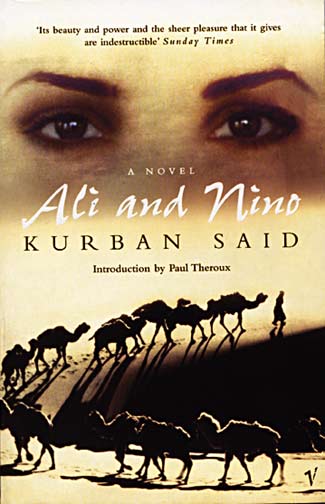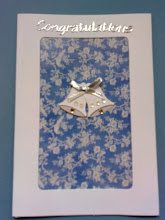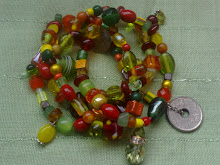The pair of the title are Ali Khan Shirvanshir a young Muslim aristocrat and Nino Kipiani, a Georgian Christian living in the old-fashioned yet strangely cosmopolitan town of Baku. As childhood sweethearts, their culture, faith, political allegiances and families stand in the way of them possibly marrying.
The story is set during the years preceding and during the First World War and the subsequent creation of independent Azerbaijan and we witness the dramatic upheaval these events bring to the lives of Ali, Nino and their cast of friends and foes: Arab, Georgian, Armenian, Russian, Turkish, Persian and British.
The book paints a vivid and intriguing picture of the Central Asian town with its strategic position between the Eastern and Western world. The harems, patriarchy and strict social etiquettes of the Muslims are contrasted with the raucous parties, excesses and freedoms of the Georgians. Ali is portrayed as being enchanted by the call of the desert and Nino as feeling herself come alive amongst the rich dirt and the trees of the woodlands. The focus of the book for me was not so much East versus West as is the vogue regarding such things today, but the way the Caucasus is a mixture of East and West, of tradition and modernity and of so many faiths and cultures.
Questions are raised about what should spur a man to war: faith? Nationality? The prospect of survival? Other substantial themes touched on in this book are love, honour, faith, the role and rights of women, leaving behind childhood and duty.
Said takes us on an interesting journey through the Caucusus, via Baku, Daghestan, Karabakh, Georgia and Iran highlighting the unique character of each place and it’s people (indeed there is an Ali and Nino tour).
My reservation was the books treatment of its Muslim characters which were beyond caricature. Kurban himself was said to be a Muslim (the author is considered most likely to be Lev Nussimbaum who converted to Islam from Judaism, although the book has been attributed to various others ), which makes me wonder if his portrayal of Ali and his family is supposed to be satirical, but I really could not be sure:
“A creature without soul and intelligence has no faith anyway. No Paradise or Hell is waiting for a woman. When she dies she just disintegrates into nothing. The sons must of course be Shiites” p.89
Such passages and descriptions and dialogue abound through the book and made me wonder what Kurban was aiming at. Muslim’s are portrayed as racists, incredibly, horribly misogynist, in love with violence, snobs and hypocrites – beating themselves during Muharram and then lording it over their harems (complete with eunach) and drinking themselves into oblivion the rest of the time (no stereotypes there then).
Also, the book is narrated through Ali and so we gain a limited insight into what Nino is feeling and thinking aside from what her outbursts and impetuous actions show.
Aside from this, this is an interesting book about a little known place and events with a rather bitter sweet love story running through it.
































Thank you! I was waiting for another book review. Meanwhile...I nominated you here: http://www.brasscrescent.org/
ReplyDeleteAssalam-alaikam Sis,
ReplyDeleteTwo more book reviews to come.
What are you trying to do, make me fall off of my chair? I was wondering when nominations would open, I wanted to nominate a few blogs I like. I think your opinion of me is skewed though because your just nice mash'Allah.
No, no, credit is due when credit is due! I just don't like the torture when I look at your henna images...my daughter is not happy about that! :-)
ReplyDelete